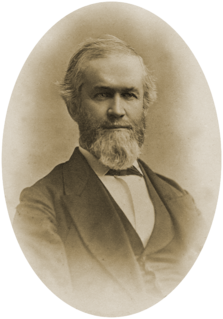A Quote by Mark Twain
I think a compliment ought always to precede a complaint, where one is possible, because it softens resentment and insures for the complaint a courteous and gentle reception.
Related Quotes
But, sir, the great cause of complaint now is the slavery question, and the questions growing out of it. If there is any other cause of complaint which has been influential in any quarter, to bring about the crisis which is now upon us; if any State or any people have made the troubles growing out of this question, a pretext for agitation instead of a cause of honest complaint, Virginia can have no sympathy whatever, in any such feeling, in any such policy, in any such attempt. It is the slavery question. Is it not so?





































